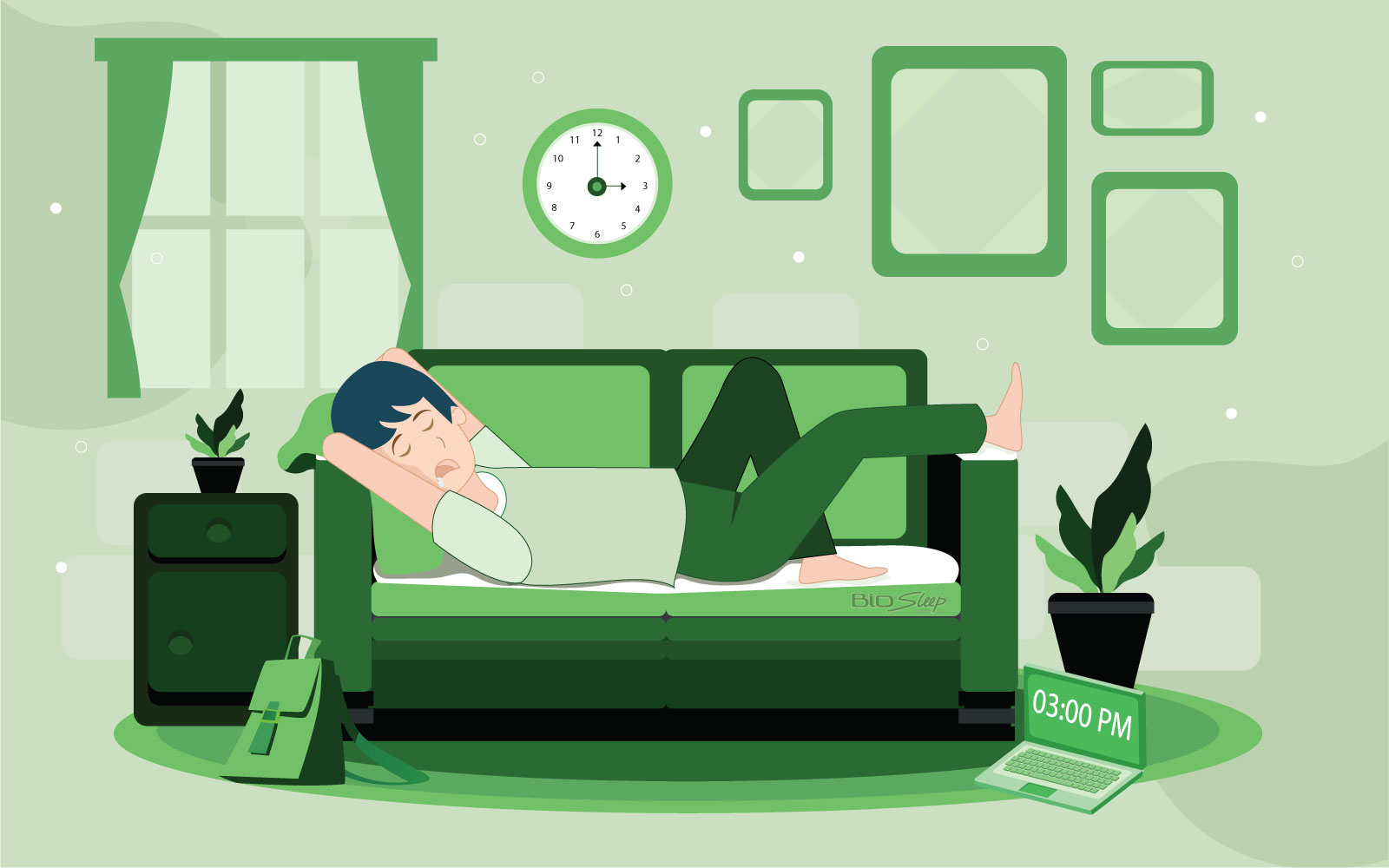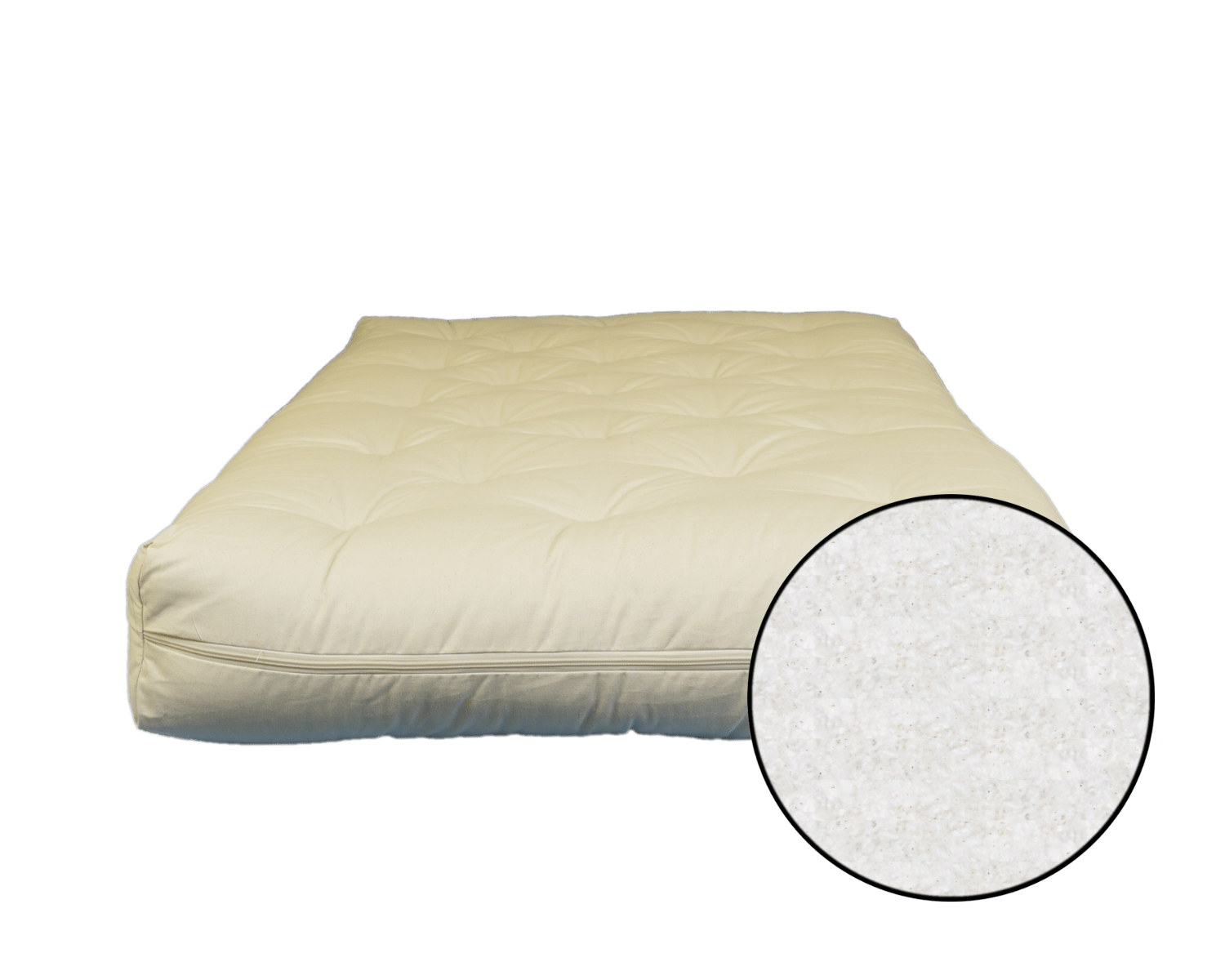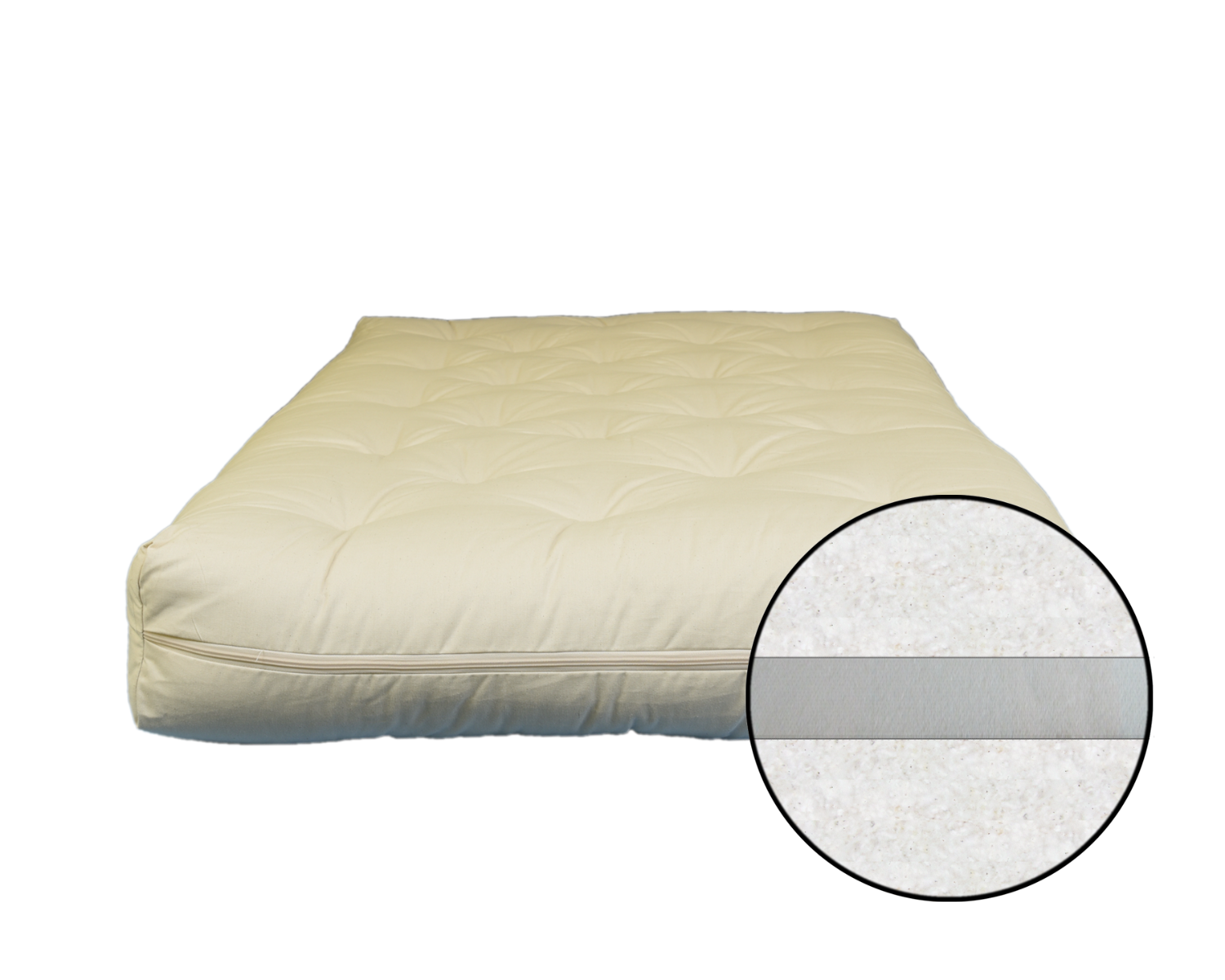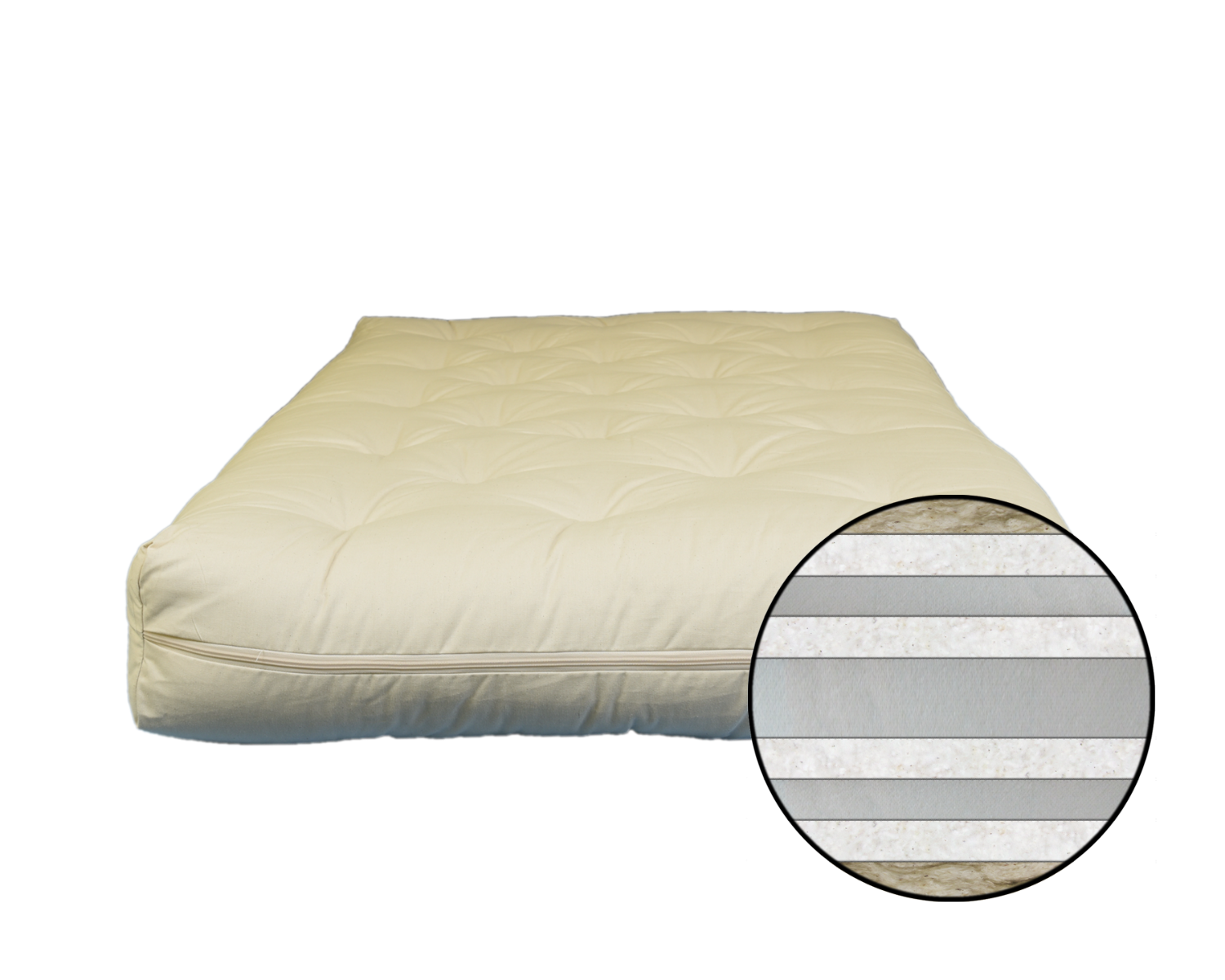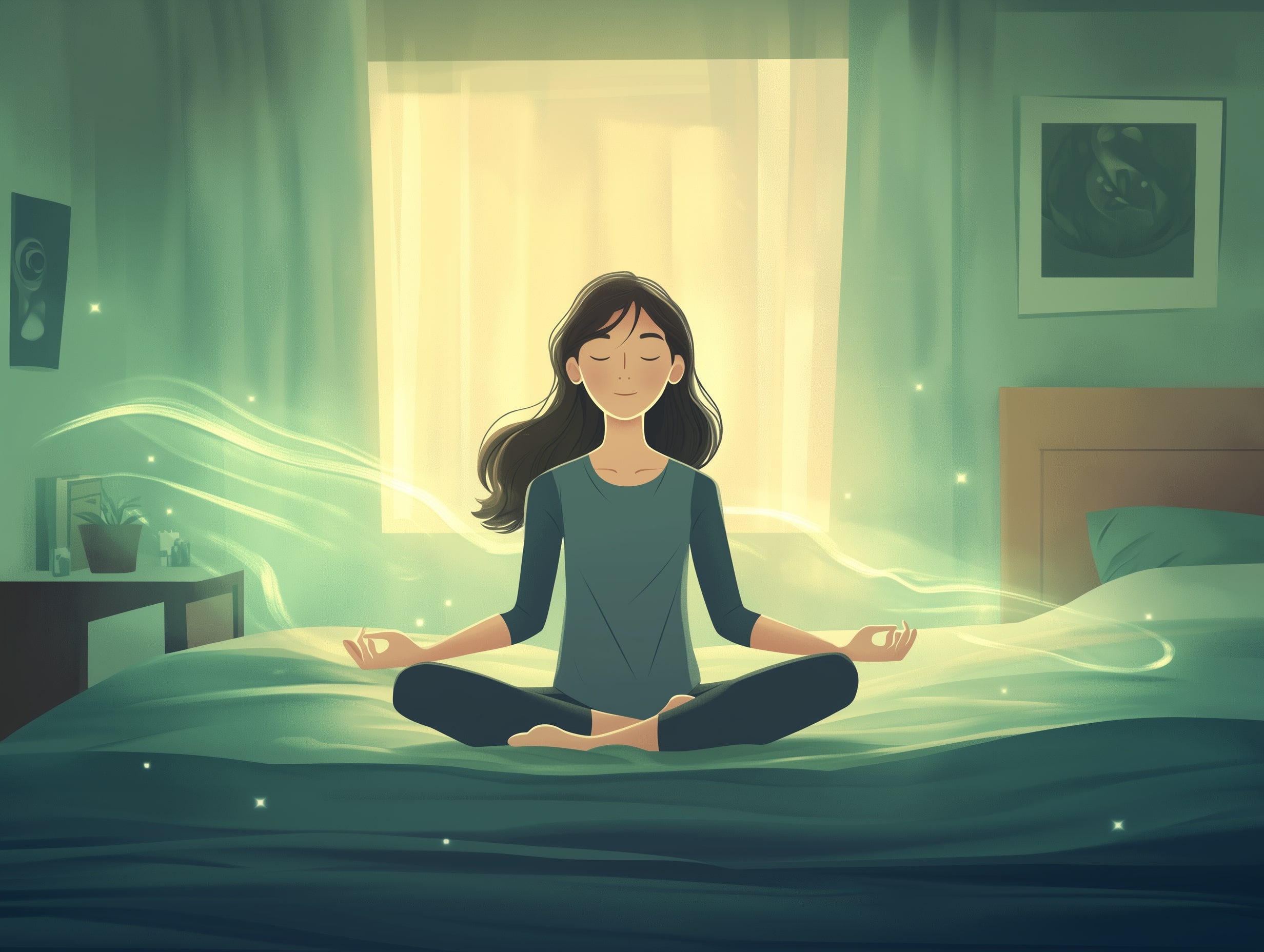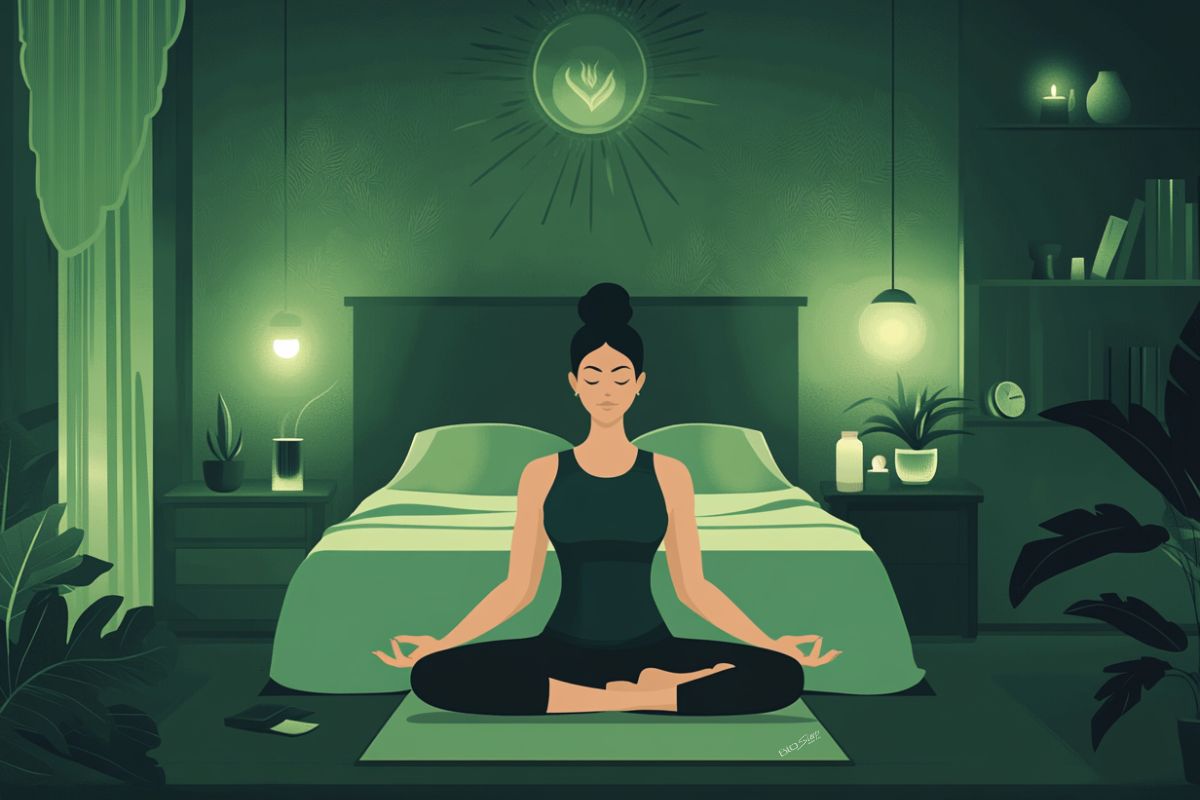When we are young, taking naps after school or sleeping during the day is a routine activity. However, as we grow old, we stop taking naps because we naturally have more responsibilities and work schedules to follow.
However, you may experience a dull phase of drowsiness in the afternoon, almost 8 hours after you wake up. This is true for people who get enough sleep at night as well as those who don’t.
Scientists believe that all these people can improve alertness, decrease stress, and ensure better cognitive function if they take a power nap mid-day. Your reaction time becomes much better, you are more efficient, and you can solve that work problem without issue.
Creating a perfect environment for a nap, such asa certified organic cotton mattress, low light, comfortable, etc., also contribute to good sleep. This means you wake up energized and fresh.
Let’s explore more about power naps and sleep cycles.
How Much Do We Sleep?
Every day, an adult requires almost 7-9 hours of sleep to function properly. If you reduce your sleep duration, your body physically and mentally experiences the impact, such as anger, short attention span, headache, irritation, etc.
If you have visited the office after sleeping less than 6 hours, you may already understand the impact of not getting enough sleep. Therefore, it is necessary to create a schedule that includes 7-9 hours of sleep.
How Does Sleep Affect Us?
Sleep has a cumulative impact on our bodies. When you cannot sleep properly for one day, the next day is quite hectic, and you try to make up for this lost sleep the next day. If we end up with an adequate amount of missed sleep hours, our body creates a sleep deficit. This deficit impacts us in a series of ways by impairing our:
- Judgment
- Vision
- Reaction and response
- Information processing speed
- Memory
- Performance
- Patience
When you keep increasing your sleep deficit, your body increases stress, burnout, and other symptoms that may also lead to fatigue.
Benefits of Taking a Power Nap
According to many sleep experts, taking even a 20-minute nap in the afternoon is more powerful than the extra 20 minutes of sleep during the night. We are naturally lazy and lethargic in the afternoon, almost everyone experiences it. This only means that our bodies are designed to function that way. After 8 hours of waking up, you need a power nap on your certified organic cotton mattress.
But, how much should you sleep?
Every person sleeps in stages during the night, which is referred to as the sleep cycle. During these sleep cycles, there are stages like deep sleep, light sleep, and rapid-eye-movement sleep. In each of these stages, different processes are performed. For example, deep sleep helps our body repair, it is the healing phase. In REM sleep, our mind repairs.
This is the reason why experts suggest taking a nap for only 15-30 minutes during the day. If you sleep longer, you may enter deep sleep, which makes it hard to wake up and function normally. It also hampers your deep sleep at night.
However, contrary to this, it is also believed that the duration of your nap can be accurately decided, depending on your sleep phases. Many people benefit from a 1-hour nap because it has a much better restorative impact on our body and cognitive functioning. For this, you need to know how long different sleep cycles last, which will help you wake up from a nap at the right time.
With this, it is also necessary to remember that we feel groggy when we wake up in between a sleep cycle. The deeper sleep states (if you complete them) may not make you as tired and groggy as you think they may.
Taking a nap has more benefits for your health than you may have anticipated. Therefore, if you can find time during the day to take a 30-minute nap, go for it. Even when you have 5 minutes, just close your eyes and rest. This will help reduce stress and improve your efficiency.
Tips for a Relaxing Nap
If you need to take a beneficial nap, here are some tips that may help you:
- Firstly, sleep on a certified organic cotton mattress because it has multiple health benefits. You are not exposed to fumes, the material is relaxing, and your body gets appropriate lumbar support.
- Reduce intake of caffeine in the evening. Consuming caffeine after 3 or 4 PM can enter your body into a waking state, which may impact your deep sleep cycles during the night, which means you are groggy and irritated the next day.
- Don’t take naps longer than 1 hour, as you can enter a deep sleep state, which will hamper your deep sleep cycles during the night. The pattern repeats, which may lead to sleep deficit as well.
- If your body doesn’t feel relaxed after a nap in the afternoon, you can refresh yourself with meditation. Try other relaxing methods to help your body relax.
Conclusion
Taking a nap in the afternoon or after 8 hours of waking up is healthy for your body. You can think clearly and work efficiently.
Read the above data and understand how a 30-minute nap can benefit your body and mind. Know the impact of a certified organic cotton mattress on your sleep, and make a purchase today!

